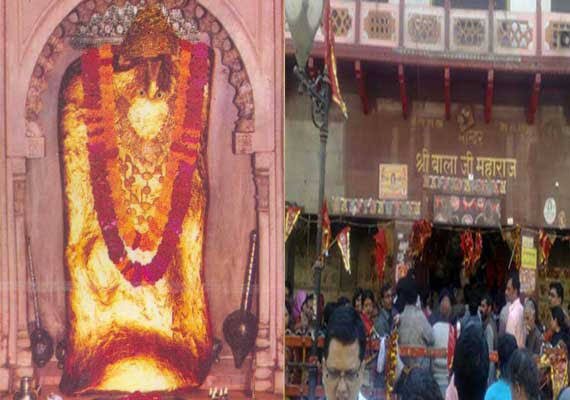Rajasthan’s Mehandipur Balaji Temple, dedicated to Lord Hanuman, has garnered attention not just for its spiritual significance but for its controversial exorcism rituals. These rituals, have been in practice for decades. Moreover, it draws people from all over India, many seeking to rid themselves of supposed demonic possessions.

Exorcism Practices
The temple is infamous for its dramatic and intense exorcism ceremonies. People experiencing possession display extreme behaviors: they swing violently, their eyes roll back to show only the whites, and they scream and thrash about. These manifestations are often a signs of demonic presence.

Rituals and Pandits: Mehandipur Balaji Temple
At the temple, the pandits (priests) perform exorcism (priests) for free. Often, the rituals involve putting the possessed in a trance-like state. During these rituals, the possessed may roll on the ground, hang their tongues out, and exhibit other uncontrolled behaviors. By following specific rituals, the pandits claim the ghosts expellation, sometimes successfully sending people home free from possession.
The Offering: Mehandipur Balaji Temple
As part of the ritualistic process, devotees give Balaji a token offering, typically 2.5 rupees and a sweet called “Kala laado.”
Historical Practices
During the 1980s and 1990s, the temple’s exorcism practices were more severe. Priest used to hang people upside down and beaten. Moreover, some were starved to “kill” the ghost inside them. Although these extreme measures have largely been condemned but are rumored to still occur behind closed doors today.
The Metal Gate: Mehandipur Balaji Temple
A large metal gate at the temple has been a focal point of dark tales. People claim to hear the screams of women from behind it, suggesting that the extreme rituals of the past might still be practiced in secrecy. Despite inquiries, locals often remain tight-lipped, maintaining that such activities continue but hidden from the public eye.
Conclusion
The Balaji Temple’s practices present a darker side of religious rituals and exorcism in India. While some find solace and relief in these ceremonies, others see them as a reflection of deeper societal and psychological issues. Thus, the tension between faith, tradition, and modern ethics continues to provoke debate and concern.

